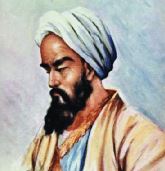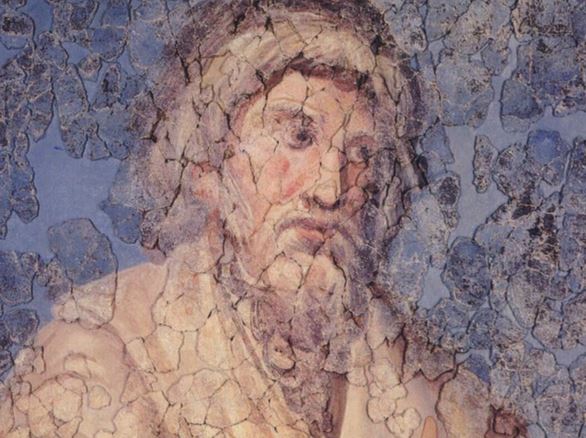Abu Bakr (573–634 CE), also known as Abu Bakr al-Siddiq, was a close companion of Prophet Muhammad and the first caliph of the Islamic community following the Prophet’s death in 632 CE. His leadership played a crucial role in the early expansion of Islam and the unification of the Arabian Peninsula under Islamic rule. Abu Bakr’s life, leadership, and legacy are foundational to Islamic history, and his title “al-Siddiq” (The Truthful) reflects his unwavering support for the Prophet. This article explores the life, achievements, and significance of Abu Bakr as a leader, covering his contributions to Islam while optimizing for SEO.
Early Life and Background
Born in 573 CE into the noble tribe of Quraysh in Mecca, Abu Bakr’s full name was Abu Bakr Abdullah ibn Abi Quhafa. He came from a respected and wealthy family, and even in his early years, Abu Bakr was known for his wisdom, humility, and generosity. He was a successful merchant and used his wealth to support the needy, earning him respect and admiration in Meccan society.
Abu Bakr’s character, integrity, and honesty made him a trusted figure in Mecca, long before the advent of Islam. He developed a deep friendship with Prophet Muhammad, and when Muhammad received the first revelation in 610 CE, Abu Bakr was among the first men to embrace Islam. His unwavering belief in Muhammad’s message earned him the title “al-Siddiq”, meaning “the truthful one.”
Abu Bakr’s Relationship with Prophet Muhammad
Abu Bakr played a vital role in the early Islamic movement, standing by the Prophet during some of the most challenging periods in the rise of Islam. His loyalty and faith never wavered, making him one of the Prophet’s closest and most trusted companions.
- One of the First Converts to Islam:
- Abu Bakr was the first adult male to accept Islam after Prophet Muhammad’s wife Khadijah. His conversion was significant, as his influence helped bring many others to Islam. He is credited with encouraging prominent figures such as Uthman ibn Affan, Zubair ibn al-Awwam, and Abdul Rahman ibn Awf to embrace Islam, all of whom became key companions of the Prophet.
- Migration to Medina (Hijra):
- In 622 CE, when the Prophet and the early Muslims faced persecution in Mecca, Abu Bakr accompanied Muhammad on the Hijra, the migration to Medina. This journey was perilous, but Abu Bakr’s devotion and protection of the Prophet during this time exemplified his unwavering commitment to Islam. Their time together in the cave of Thawr, where they sought refuge from their enemies, is a story deeply embedded in Islamic tradition.
- Participation in Major Battles:
- Abu Bakr actively participated in major battles, including the Battle of Badr, Uhud, and the Battle of the Trench, where he fought alongside the Prophet. His courage and willingness to defend the faith strengthened his reputation among the early Muslims.
Abu Bakr as the First Caliph
Following the death of Prophet Muhammad in 632 CE, the Muslim community faced a significant challenge: the question of leadership. Abu Bakr was chosen as the first caliph (successor to the Prophet) through a consensus of the companions, marking the beginning of the Rashidun Caliphate (the Rightly Guided Caliphs).
- Consolidating Power and Unity:
- One of Abu Bakr’s first tasks as caliph was to maintain the unity of the Muslim community. After the Prophet’s death, several tribes in Arabia began to rebel, refusing to pay the zakat (obligatory charity) or renouncing Islam altogether. This period, known as the Ridda Wars (Wars of Apostasy), threatened to fracture the newly unified Arabian Peninsula.
- Abu Bakr responded decisively, launching military campaigns to bring the rebellious tribes back into the fold of Islam. His leadership during the Ridda Wars successfully reunited the Arabian Peninsula under Islamic rule, solidifying his reputation as a capable and resolute leader.
- Expansion of the Islamic State:
- Abu Bakr’s reign saw the early expansion of the Islamic state beyond the Arabian Peninsula. Under his leadership, Muslim forces launched campaigns into Iraq (then under Persian control) and Syria (part of the Byzantine Empire), laying the groundwork for the later conquests that would expand the Islamic empire.
- His military expeditions were led by famous commanders like Khalid ibn al-Walid, known as “the Sword of Allah.” Khalid’s victories in Iraq and Syria during Abu Bakr’s caliphate helped establish Muslim rule in these regions and marked the beginning of the Islamic conquests.
- Preservation of the Quran:
- One of Abu Bakr’s most enduring legacies was his role in the compilation of the Quran. After the death of many Quran reciters during the battles of the Ridda Wars, Abu Bakr recognized the need to preserve the revelations given to the Prophet. He appointed Zayd ibn Thabit to collect and compile the Quran into a single written manuscript, ensuring its preservation for future generations.
Personal Traits and Leadership Style
Abu Bakr’s leadership was marked by humility, piety, and justice. Unlike later caliphs who ruled large empires, Abu Bakr governed with simplicity and remained accessible to the people. His reign as caliph, though short (632–634 CE), was marked by profound dedication to the principles of Islam and the well-being of the Muslim community.
- Humility:
- Despite his status as the first caliph, Abu Bakr lived a simple and modest life. He continued his work as a merchant even after becoming caliph, refusing to enrich himself from the public treasury. His humility endeared him to the people, and he was deeply respected for his piety and honesty.
- Justice and Compassion:
- Abu Bakr ruled with justice, following the teachings of the Prophet closely. His caliphate was characterized by a commitment to fairness, ensuring that all members of the Muslim community were treated equally. His sense of compassion extended to his decisions during warfare, where he instructed his commanders to avoid harming civilians, women, children, and non-combatants.
- Devotion to Faith:
- Abu Bakr’s devotion to Islam was unparalleled. He led the community in prayer, made decisions based on Islamic principles, and constantly sought to uphold the values taught by the Prophet. His leadership ensured that the nascent Islamic state remained faithful to its religious foundation.
Death and Legacy
Abu Bakr fell ill in 634 CE and, sensing that his time was near, appointed Umar ibn al-Khattab as his successor. After ruling as caliph for only two years, Abu Bakr passed away peacefully, leaving behind a united and strengthened Islamic state. His body was laid to rest beside Prophet Muhammad in Medina, in the very house where the Prophet had lived.
Abu Bakr’s legacy as the first caliph and closest companion of the Prophet is monumental. His leadership set the tone for the expansion of Islam, the consolidation of the Muslim ummah (community), and the governance of the growing Islamic empire. He is remembered for his justice, his deep faith, and his unwavering loyalty to the Prophet.
- Preservation of Islam: By successfully overcoming the Ridda Wars and unifying the Arabian Peninsula, Abu Bakr preserved the Islamic state at a critical moment in its history.
- Expansion of the Islamic Empire: His early conquests into Iraq and Syria laid the foundation for the vast Islamic empire that would grow under later caliphs.
- Moral Example: As a leader, Abu Bakr exemplified the highest ideals of Islamic governance—humility, piety, and justice. His reign remains a model for Muslim leadership throughout history.
Abu Bakr al-Siddiq’s life and leadership played a pivotal role in shaping the early Islamic community. His deep loyalty to Prophet Muhammad, his military and political acumen, and his commitment to justice and faith ensured that Islam not only survived the tumultuous period following the Prophet’s death but also expanded and flourished. As the first caliph of Islam, Abu Bakr’s contributions to the growth and preservation of the Muslim ummah remain foundational to the history of Islam, and his legacy as a just and humble leader continues to inspire Muslims around the world.




